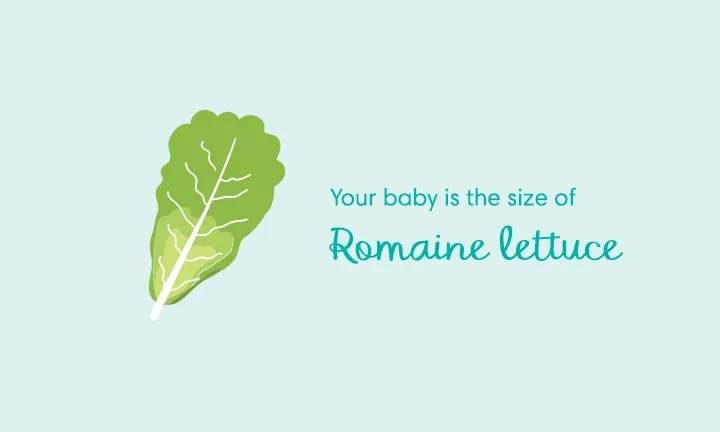36 weeks pregnant
36 Weeks Pregnant: Your Baby’s Development
How sweet the sound. At 36 weeks pregnant, your baby loves hearing you read or sing. In fact, studies show that newborns prefer the sound of their mother's voice to other voices. Research has also found that newborns show a preference for a song that was played to them repeatedly while they were in the uterus. It's not too late to start: Pick a time each day to play or sing a favorite song, or read your baby a story from the 36th week of pregnancy.
The incredible, shapable skull. Your baby's head is specially designed to travel through your cervix and pelvis. The bones in his skull aren't fused together yet; this loose construction facilitates his trip down the birth canal without harming him or you. These bones will gradually fuse over the first year of life.

36 Weeks Pregnant: Your Symptoms
Step up the checkups. Most healthcare providers will want to see you weekly starting at 36 weeks pregnant. Your provider will also check your blood pressure during each visit and make sure your urine doesn't contain any protein. High blood pressure and protein in the urine are potential warning signs of preeclampsia, a condition of pregnancy that can be risky to you and the baby. Know more about what is preeclampsia & how to prevent it.
Living large. At 36th weeks pregnant, your uterus is now a thousand times larger than its original volume. (Since it's up under your ribs, making breathing more and more difficult, this fact may not come as a surprise to you!) You may have put on 25 to 30 pounds by now. Over the next four weeks, it's likely you'll gain only a few more pounds, or nothing at all. Your uterus may not be the only thing expanding. Even if edema (the medical term for swelling caused by excess fluid) hasn't troubled you up to now, you may retain more fluid in the last month of pregnancy.
Take it easy now. Whenever you can, take a few minutes to rest with your feet elevated or lie on your left side. Both positions will increase circulation, getting the fluid in your extremities moving. A note of caution: Reducing your fluid intake will not reduce edema. You still need plenty of water each day to clear waste through the kidneys, move your bowels, and keep your blood volume up.
36 Weeks Pregnant: Your Checklist
Keep singing, reading, and talking to your baby
Start scheduling weekly checkups with your doctor from the 36th week of pregnancy
Rest whenever you can, ideally with your feet elevated. Get week-by-week expert tips on pregnancy to keep track of your baby’s development & to ensure well-being of both you & your baby during entire nine months journey!
Sign up for even more weekly pregnancy tips.
Related week by week pregnancy guides

